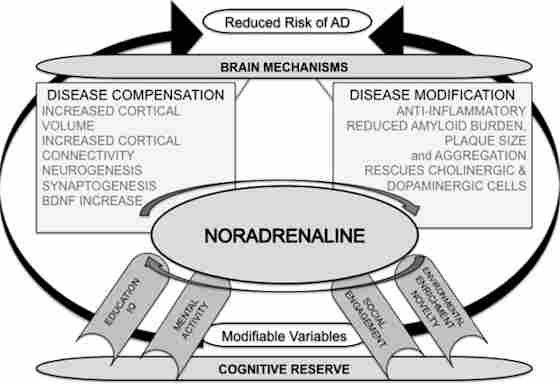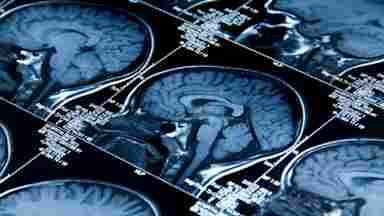Overview
The way in which Alzheimer's presents in different people largely depends on the hypothetical construct of "cognitive reserve" – a set of variables including education, intelligence, and mental stimulation which allow the brain to adapt to underlying pathologies. This review suggests that these social and psychological processes are mediated by the noradrenergic system, and that noradrenaline is a protective factor against Alzheimer's.
Schematic role of hypothesized role of noradrenaline in mediating between cognitive reserve and reduced risk of Alzheimer's disease (AD).



